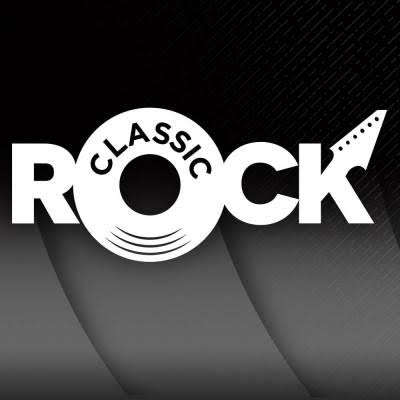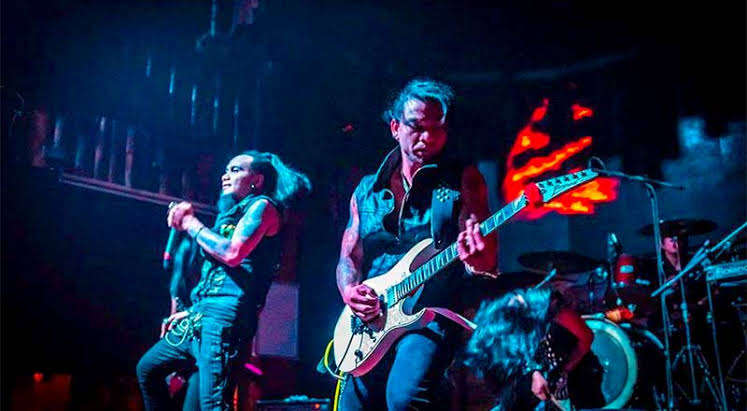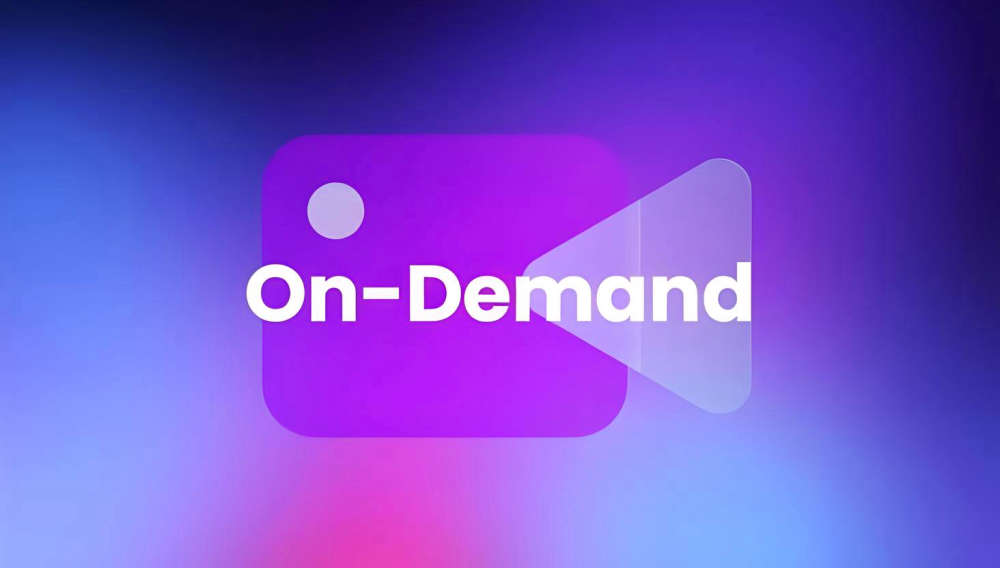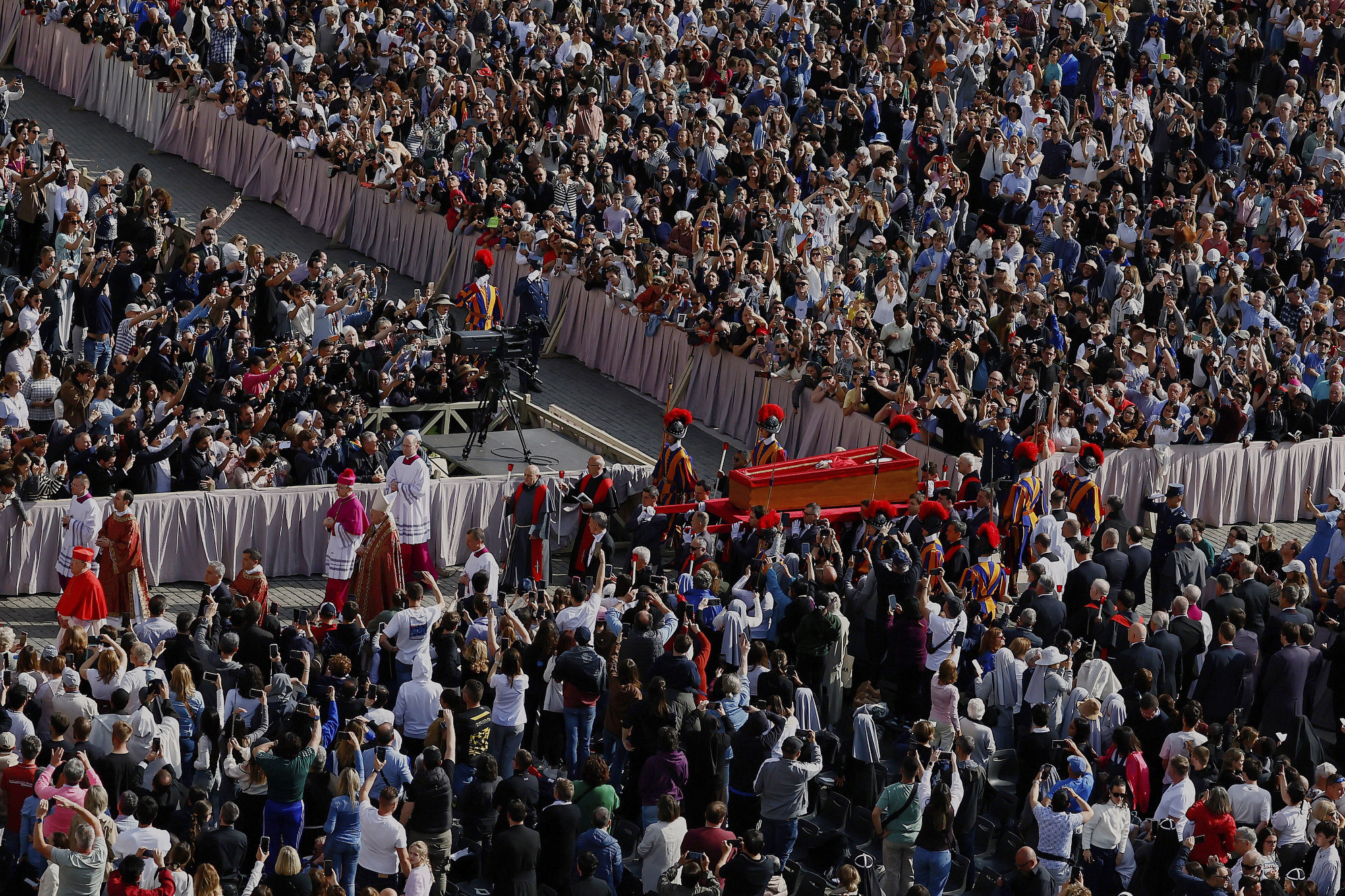
Throngs of the faithful made their way to the 16th century basilica's main altar where Francis' open wooden casket was perched, as Swiss Guards stood at attention.
Thousands of people have filed through St Peter's Basilica to pay their final respects to Pope Francis at the start of three days of public viewing ahead of his funeral.
Throngs of the faithful made their way to the 16th century basilica's main altar where Francis' open wooden casket was perched, as Swiss Guards stood at attention.
Over the coming days, tens of thousands of people are expected to pass through, and the Vatican said it could extend the viewer hours even longer due to high turnout.
READ MORE: How the Pope spent his final hours and his last touching words to nurse
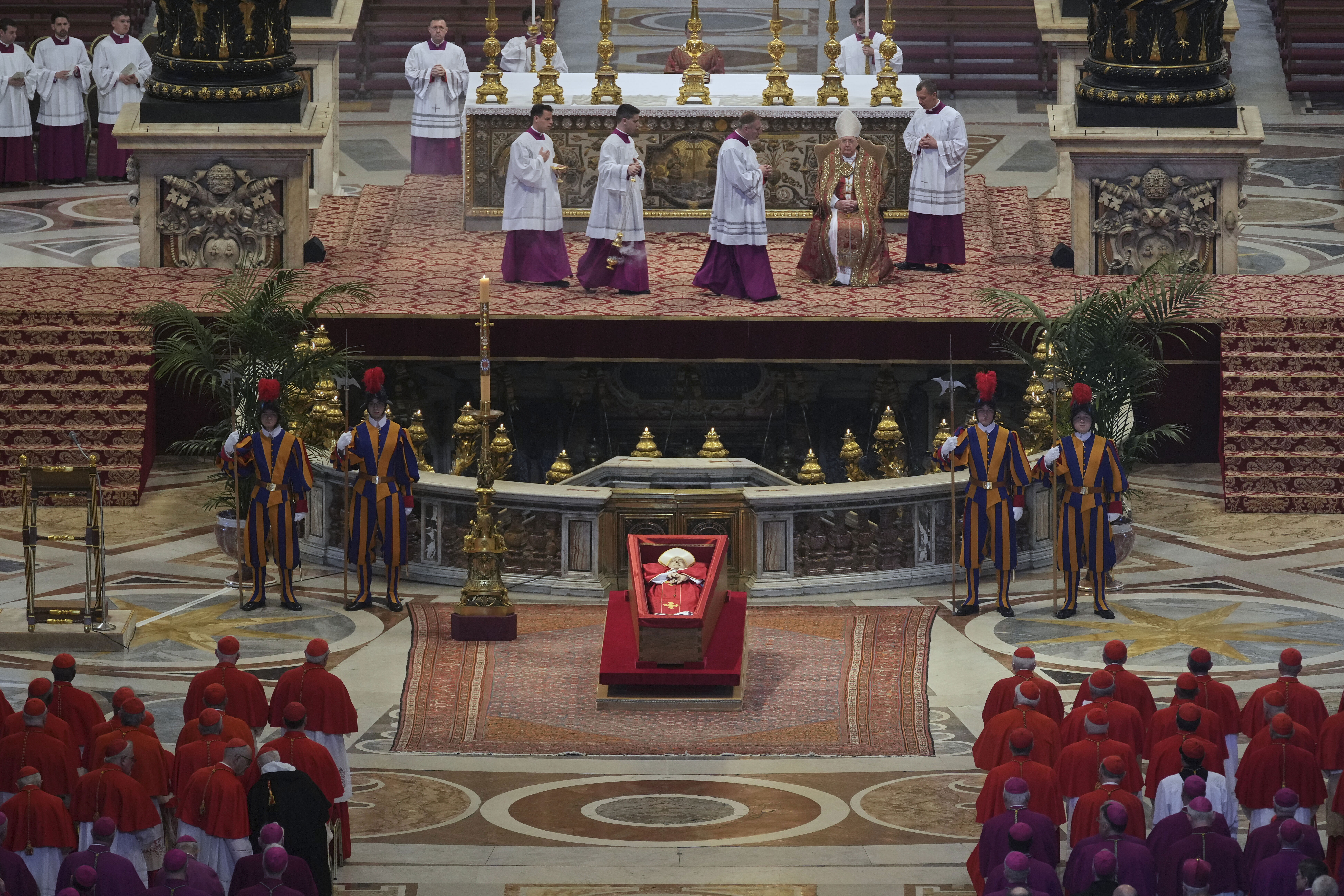
In the first eight-and-a-half hours, 19,430 people paid their respects to the pope.
Francis was laid out in red robes, clasping a rosary and wearing a bishop's miter, the traditional pointed headdress.
Mourners waited hours to reach the casket, which was behind a cordon. Some held their mobile phones aloft as they neared to snap photos in what has become a modern ritual.
"It gave me chills," said Ivenes Bianco, as she left.
She was in Rome from the southern city of Brindisi for medical care, and came to pay her respects.
"He was important to me because he encouraged co-existence. He brought many people together.''
READ MORE: At least 26 dead after gunmen open fire on tourists in disputed Himalayan region

Francis' casket wasn't put on an elevated bier — as was the case with past popes — but placed on a ramp, facing the pews.
It was in keeping with his wishes for the rituals surrounding a papal funeral to be simplified to reflect his belief that the pope's role is that of simple pastor, not world leader.
Cardinals, meanwhile, met in private to finalise preparations for Saturday's funeral and plan the conclave to elect Francis' successor.
Francis died on Monday at age 88, capping a 12-year pontificate characterised by his concern for the poor and message of inclusion, but also some criticism from conservatives who sometimes felt alienated by his progressive bent.
Francis first lay in state in the hotel where he lived, in a private viewing for Vatican residents and the papal household.
Images released by the Vatican on Tuesday showed the pope in an open casket, his hands folded over a rosary.
READ MORE: Trump says he won't play 'hard ball' with China and tariffs will be 'substantially lower'
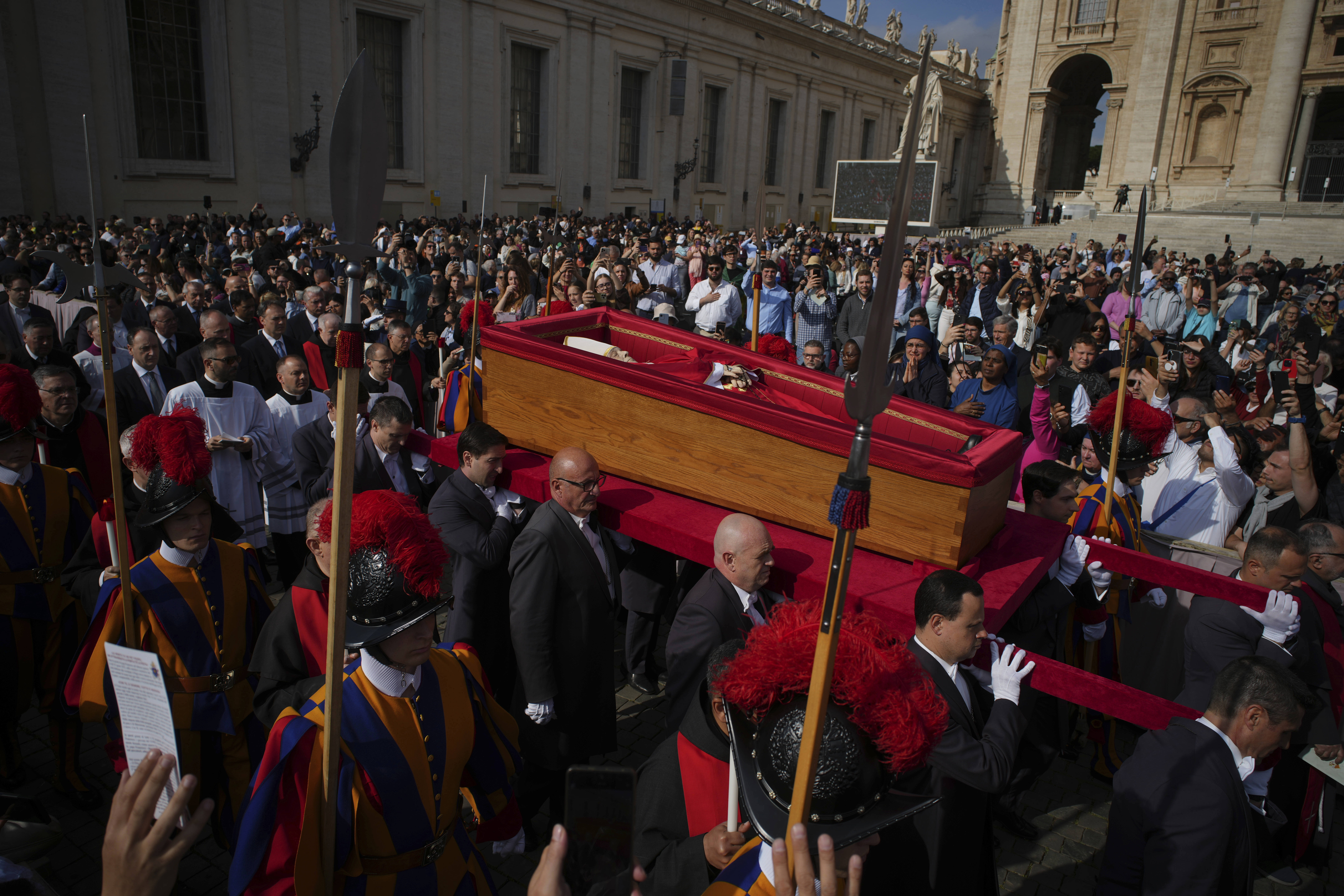
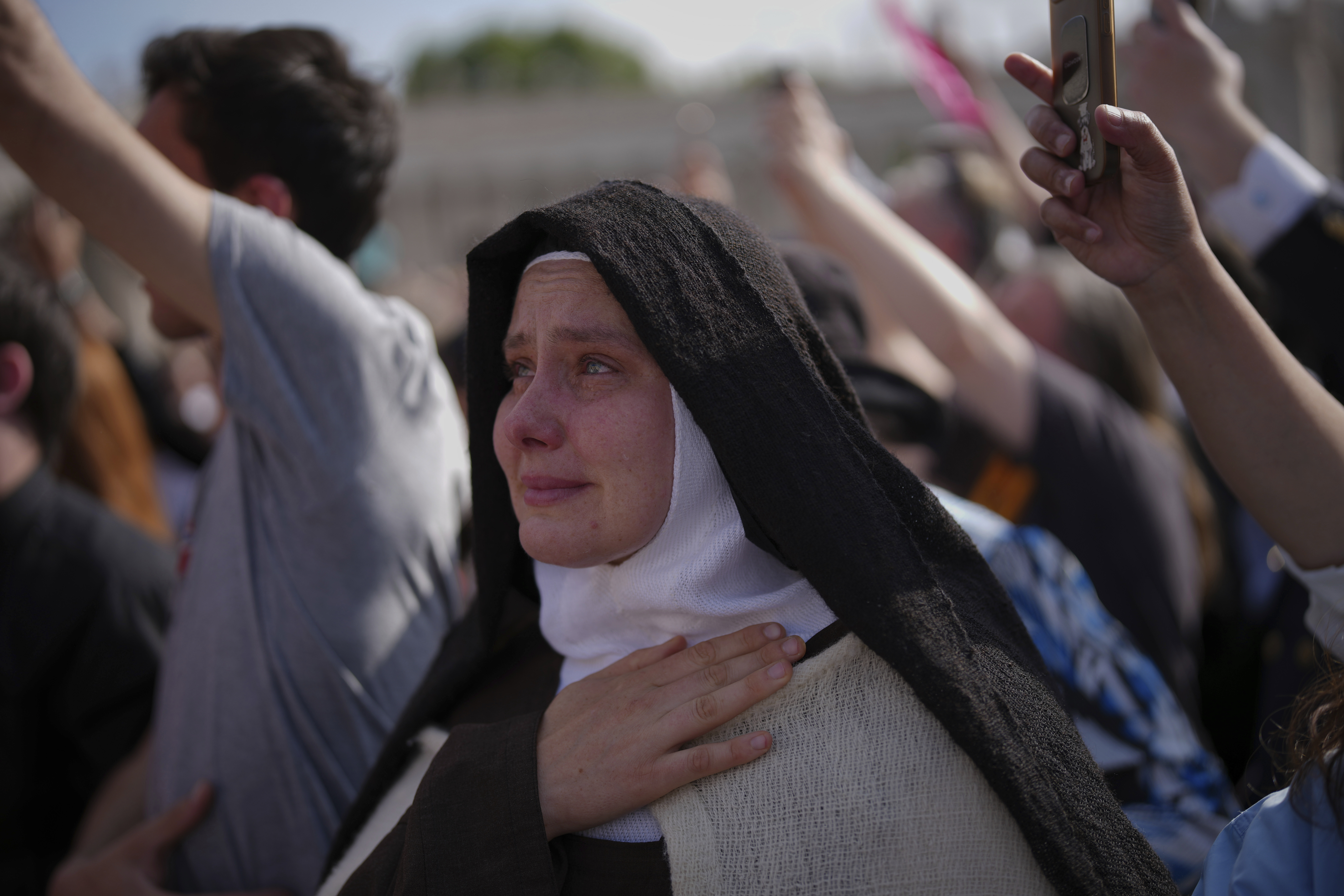
Wednesday opened with the bells of St Peter's tolling as pallbearers carried Francis' body into the basilica, in a procession through the piazza where he had delivered his final goodbye.
Francis had made a surprise "popemobile" tour through the faithful on Easter Sunday, after his nurse assured him he could despite his frail health from a bout of pneumonia and long hospitalization.
Cardinal Kevin Farrell, who is running the Vatican until a new pope is elected, led the procession to the altar, with clouds of incense and the choir chanting the Litany of Saints hymn.
In pairs, cardinals approached the casket, bowed and made a sign of the cross, followed by bishops, ushers, priests and nuns.
READ MORE: Eight men sought by police over attack outside Melbourne club
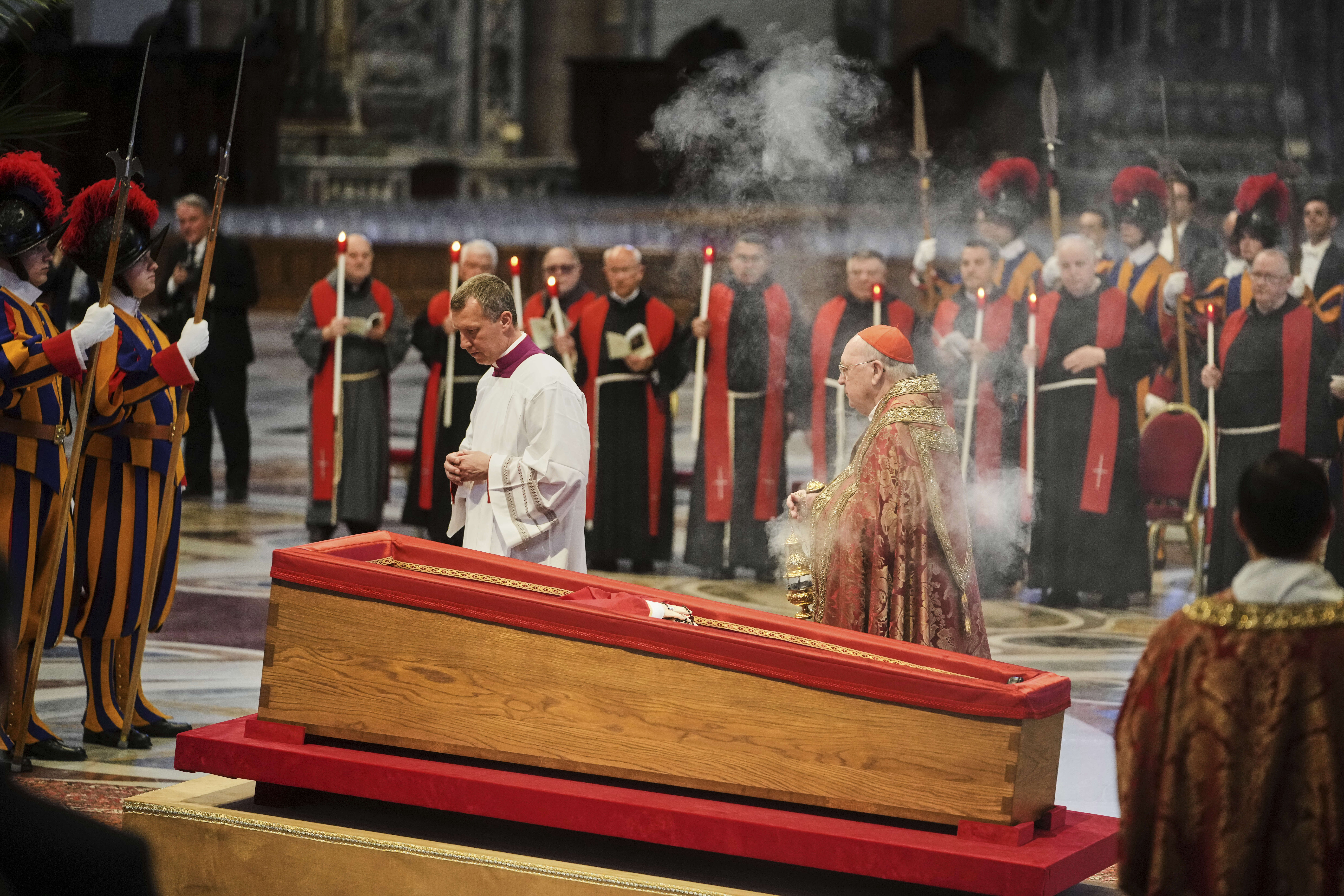
Then the doors were opened to the public. There was the squeak of sneakers, the rustling of kneeling nuns, the murmur of quiet prayers. A cough, a child's cry.
"We knew there were many people, so we approached this with calmness," said Rosa Morghen from Naples, adding: "It's the feeling one experiences when a family member passes away, as he is a father, a grandfather who has gone."
The public viewing ends Friday at 7 pm (3am AEST), after which Francis' casket will be closed and sealed.
The funeral has been set for Saturday at 10 am (6pm AEST) in St Peter's Square.
It will be attended by world leaders, including US President Donald Trump and Ukrainian President Volodmyr Zelenskyy.
After the funeral, the conclave
Francis' death and funeral will usher in a carefully orchestrated period of transition in the 1.4 billion-strong Catholic Church, with cardinals gathering over the coming days before entering a conclave, the secretive ritual voting in the Sistine Chapel to elect a new pope.
READ MORE: Pope Francis' funeral to be held on Saturday, Vatican announces
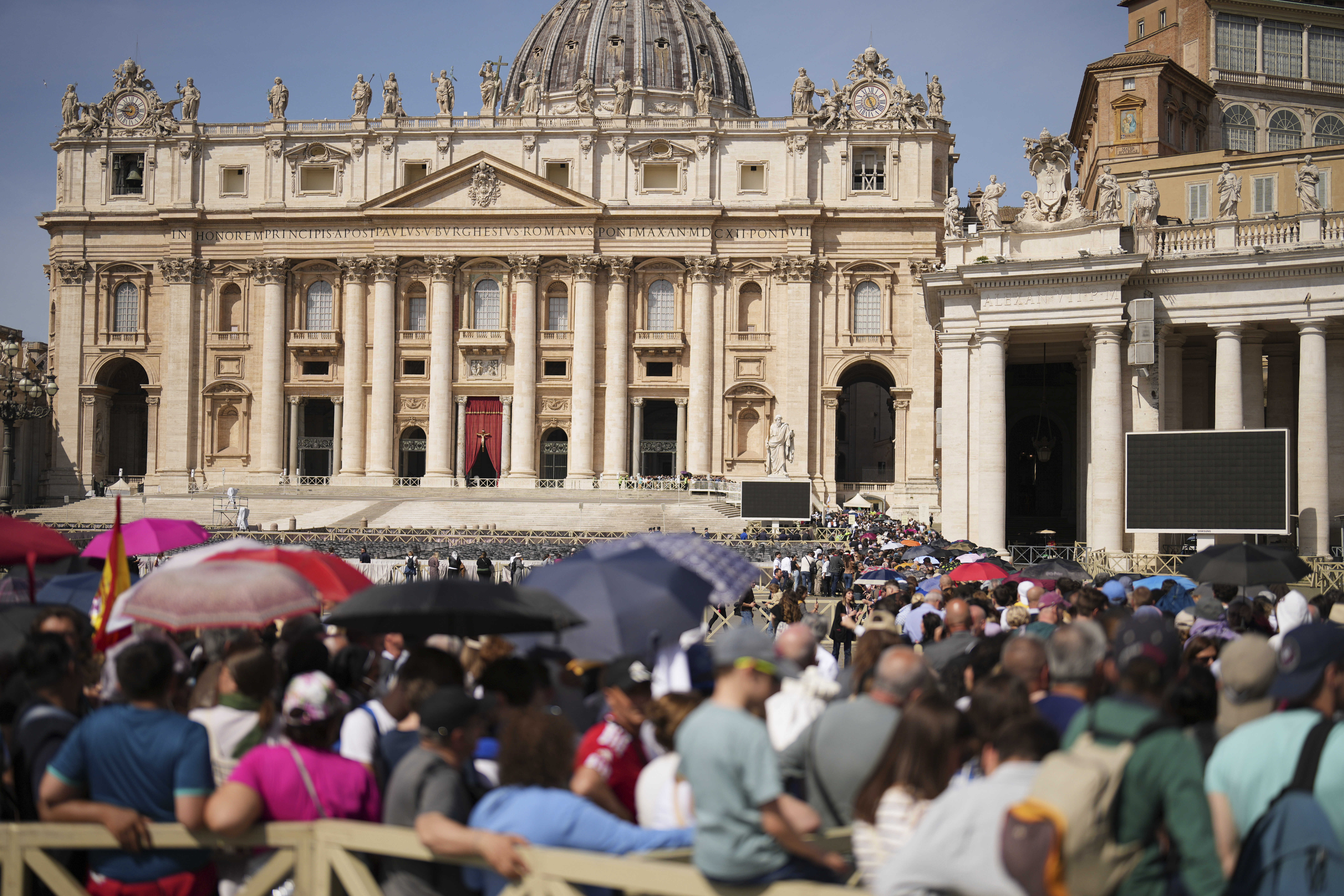
There are 133 cardinals who are under 80 years old and eligible to vote, after two bowed out for health reasons, and the new pontiff will likely come from within their ranks. The conclave is not expected to begin before May 5.
South Korean Cardinal Lazarus You Heung-sik, who heads the Vatican's office for priests, predicted a short conclave but acknowledged the transition is full of uncertainties.
"We'll see what the Holy Spirit says," he said on Wednesday. Asked if the next pope could come from Asia, where the Catholic Church is growing, he insisted: "For the Lord, there's no East or West."
Papua New Guinea's first and only cardinal, John Ribat, prepared on Wednesday to leave for Rome to participate in the vote, pleased to represent the South Pacific island nation of 12 million people and more than 800 languages in a College of Cardinals that Francis greatly diversified.
"To have a representative from here to be in the conclave, it is a big thing," Ribart told the Australian Broadcasting Corp.
READ MORE: Tesla profit results have plunged as Elon Musk is blamed over role in Donald Trump's administration

He said he hoped the next pope would be someone who could lead the church in "a way that is truthful and binds everyone together."
Italian police have tightened security for the events, carrying out foot and horse patrols around the Vatican, where pilgrims continued to arrive for the Holy Year celebrations that Francis opened in December.
"The death of a pope is not a small thing, because we've lost our leader,'' said Julio Henrique from Brazil.
"But still, in a few days, we will have a new leader. So … the thing of hope remains. Who will assume Peter's throne?"
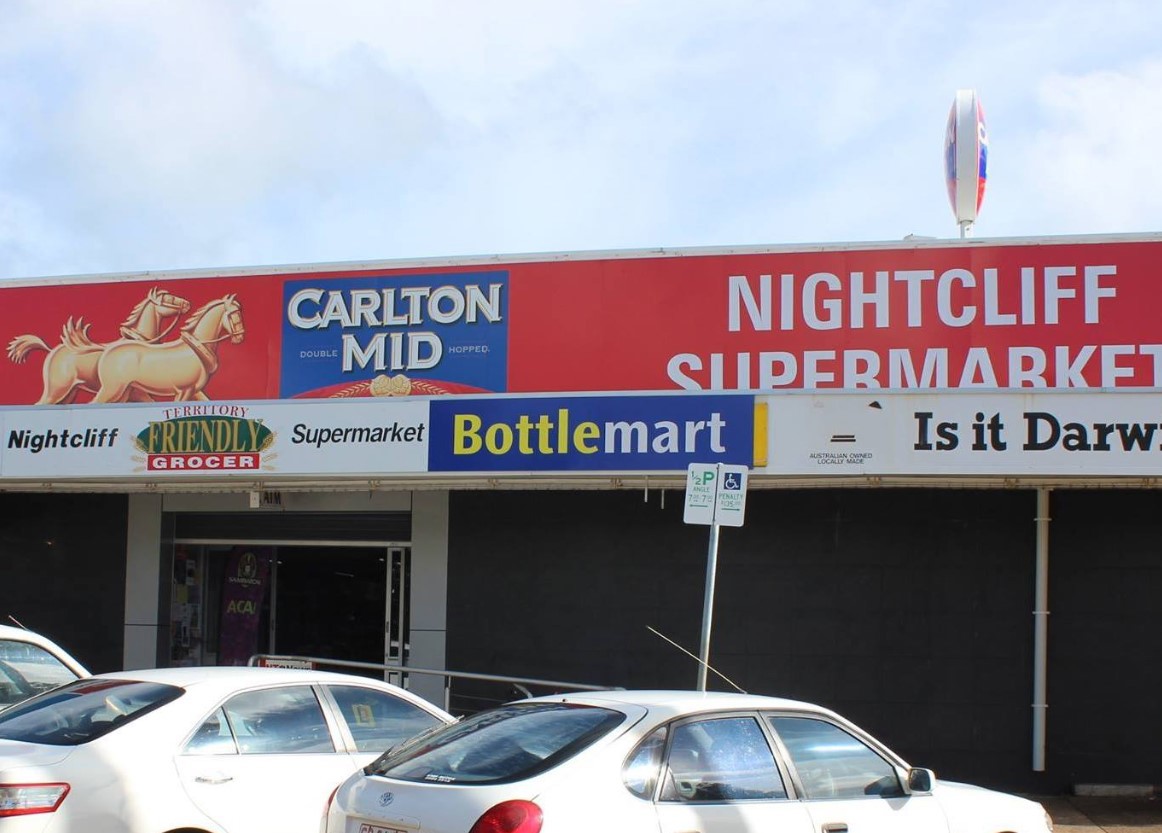 Aussie city rocked after 'much-loved' shop owner stabbed to death
Aussie city rocked after 'much-loved' shop owner stabbed to death
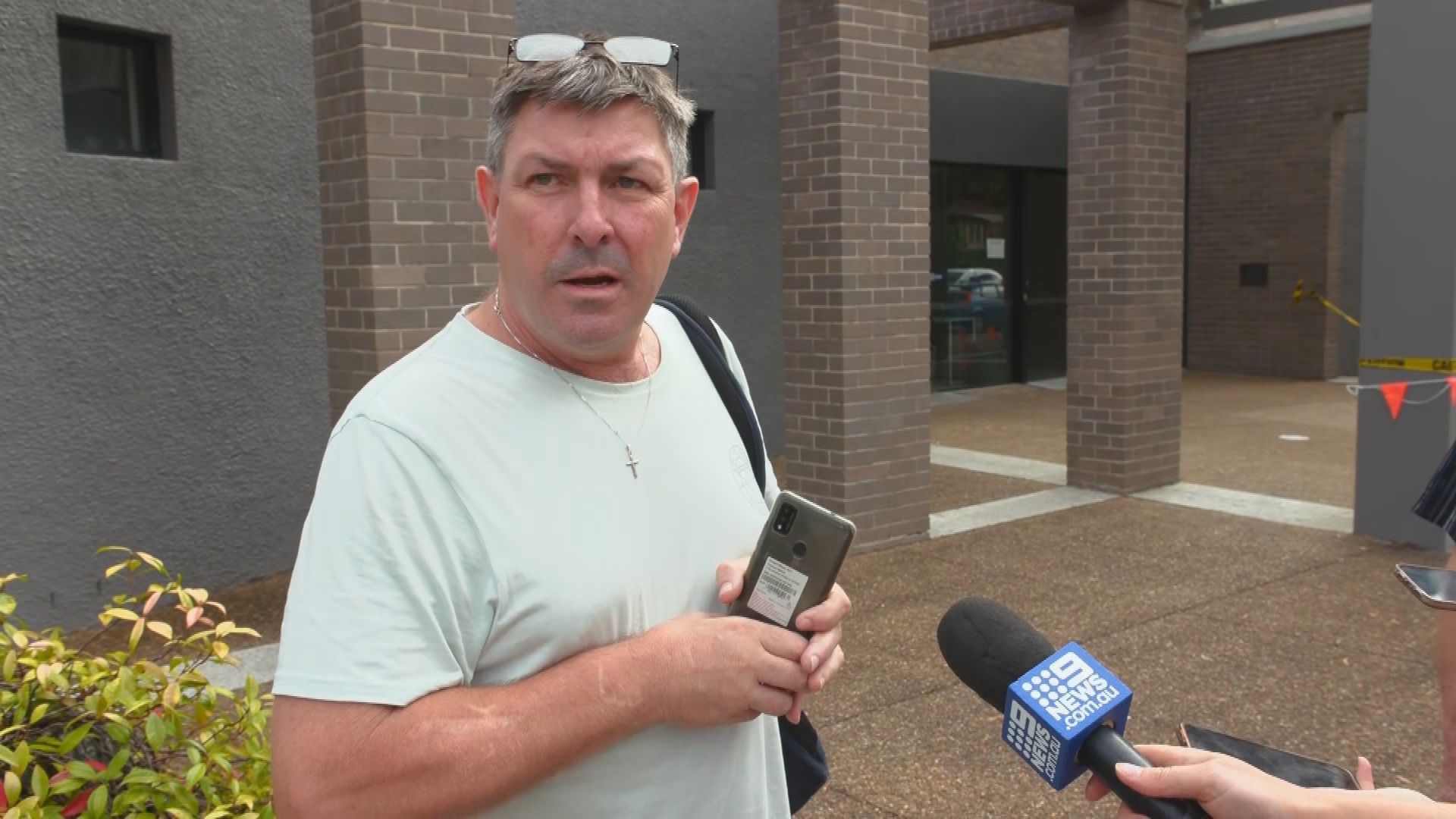 'Never drink again': Man walks free after mother-of-two's death at Sydney hotel
'Never drink again': Man walks free after mother-of-two's death at Sydney hotel
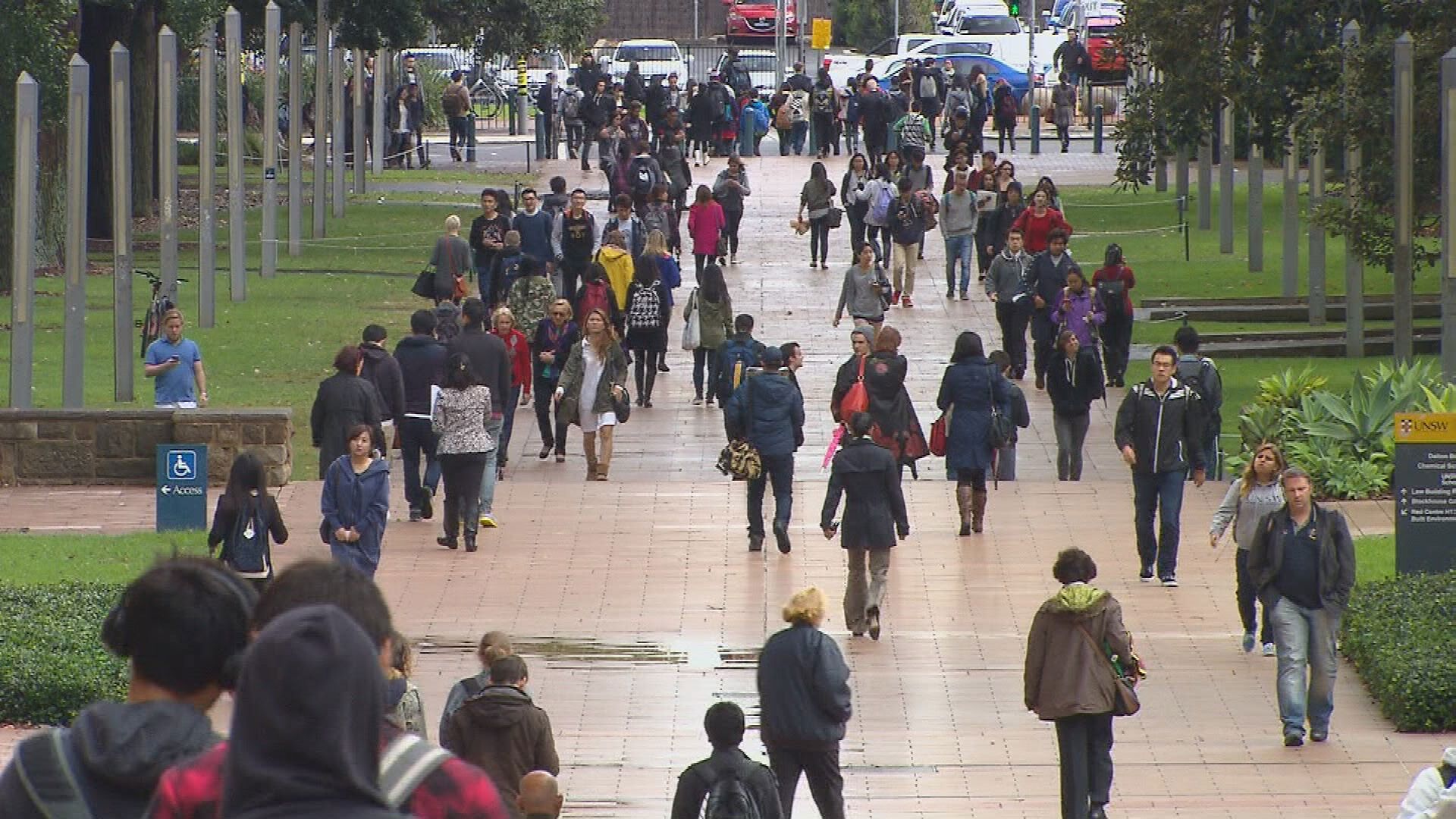 Billions in student debt on the line after Coalition ditches HECS plan
Billions in student debt on the line after Coalition ditches HECS plan
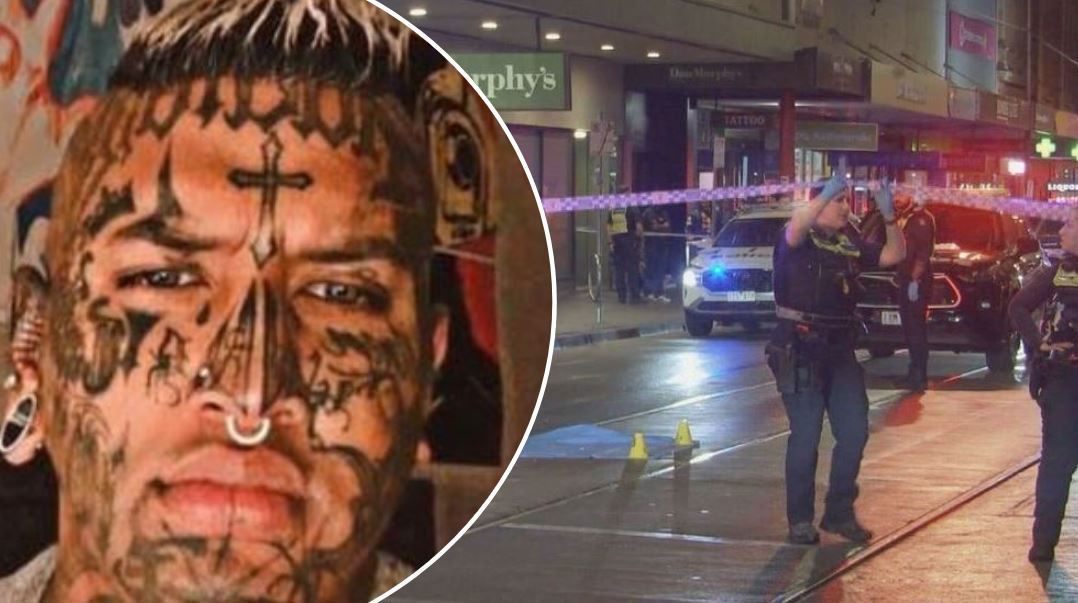 Sydney man charged with murder after stabbing on popular Melbourne night strip
Sydney man charged with murder after stabbing on popular Melbourne night strip
 Lehrmann lawyer 'missing evidence' ahead of rape trial
Lehrmann lawyer 'missing evidence' ahead of rape trial
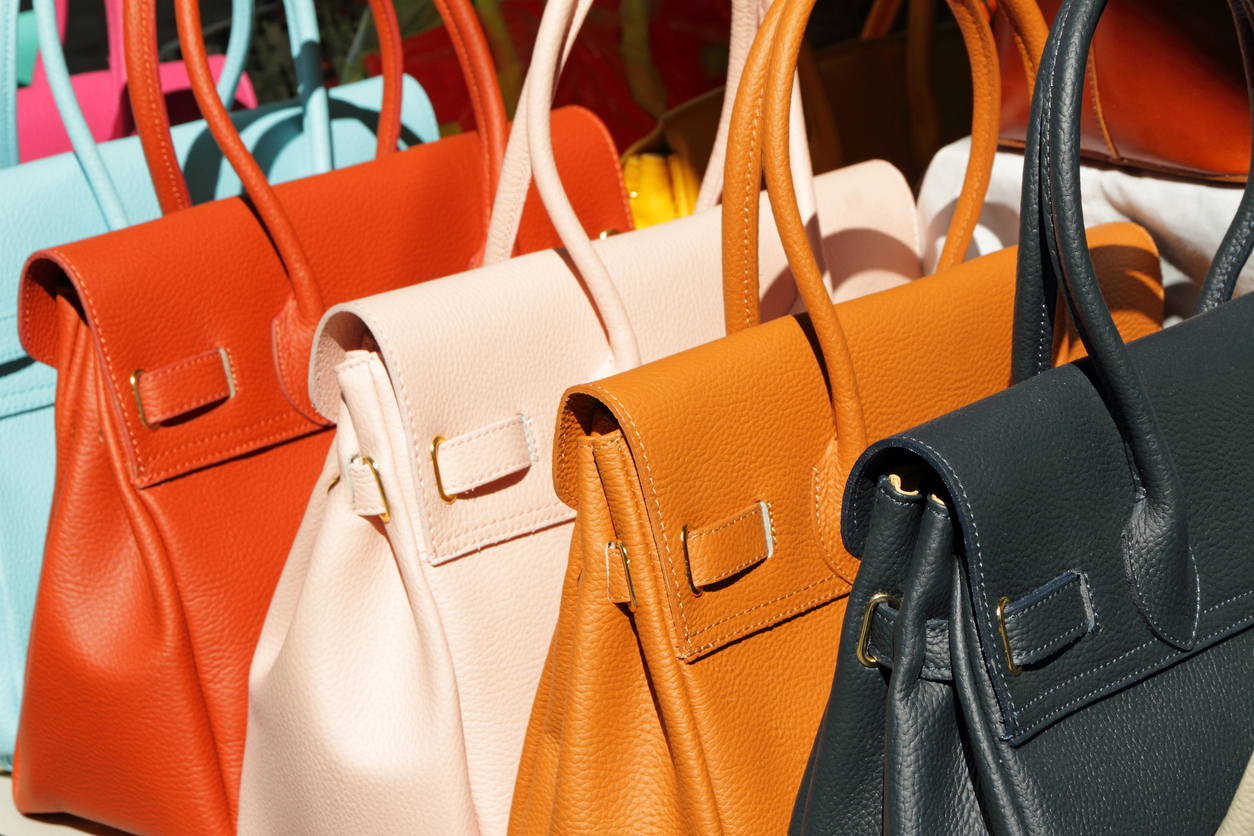 Are luxury handbags really being made in China? It's a complex answer
Are luxury handbags really being made in China? It's a complex answer
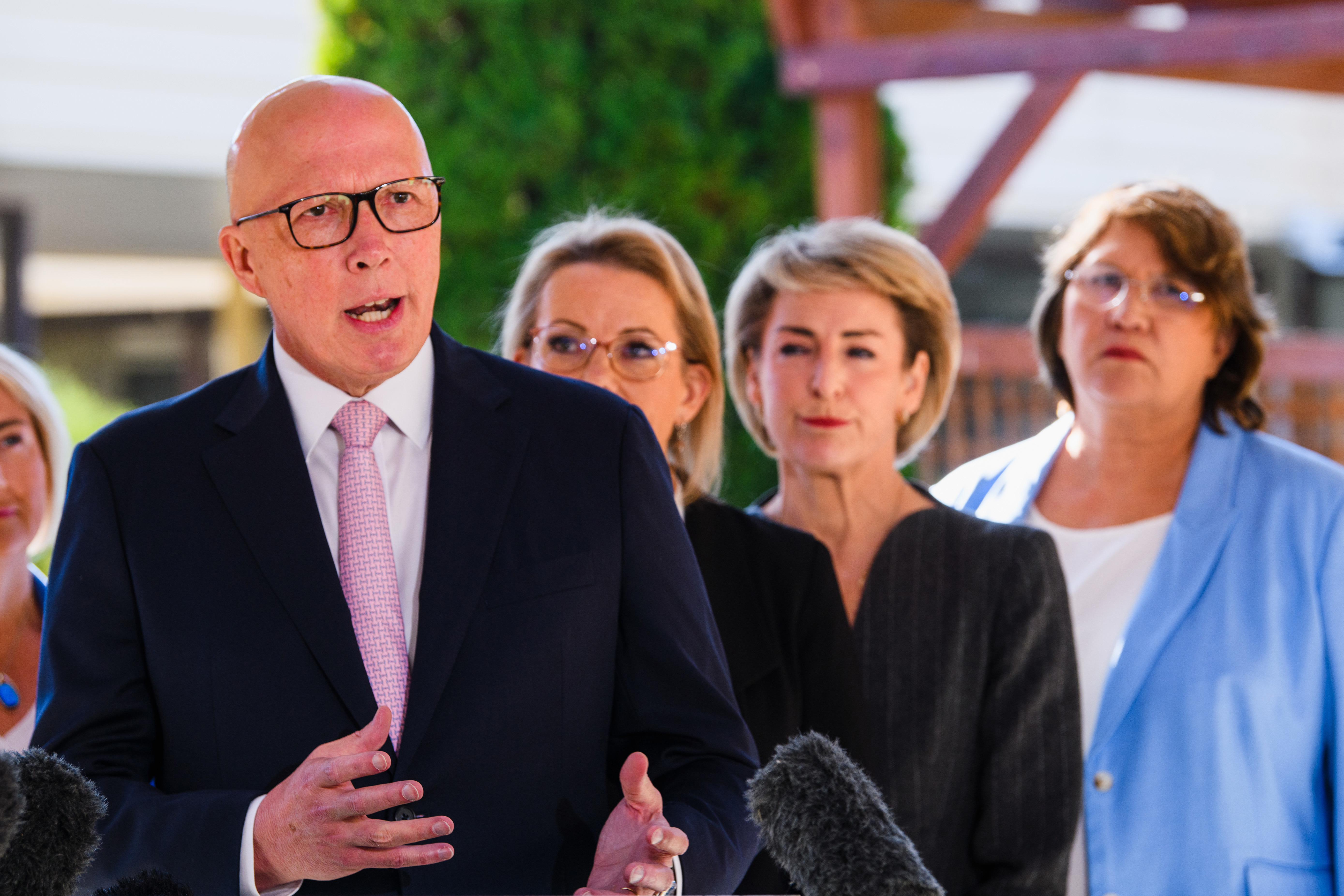 Dutton questioned over trans women after unveiling $90m domestic violence package
Dutton questioned over trans women after unveiling $90m domestic violence package
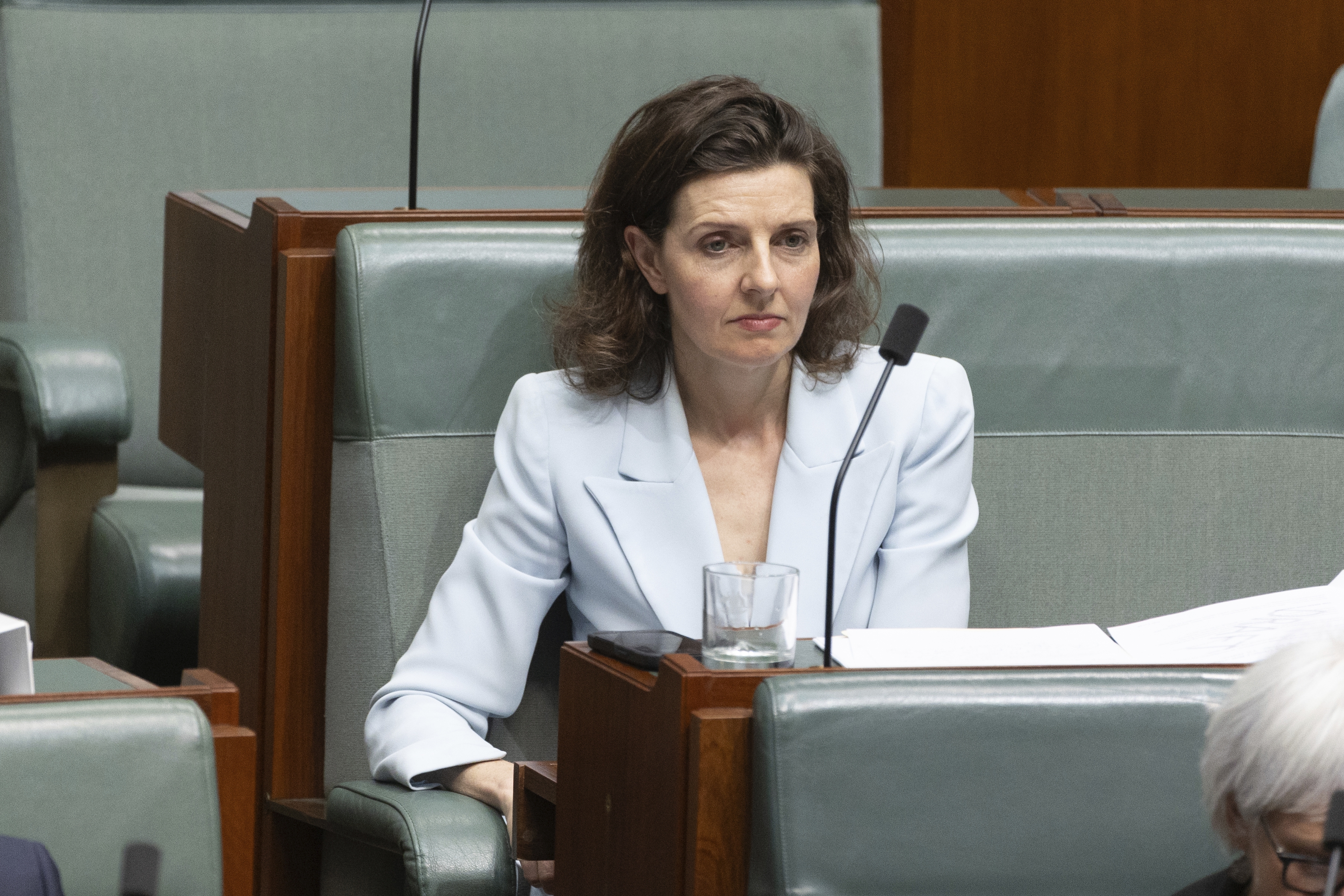 Spender questions AEC's decision not to identify offender behind 47,000 unauthorised pamphlets
Spender questions AEC's decision not to identify offender behind 47,000 unauthorised pamphlets
 Dutton insists there was no backflip over EV tax break U-turn
Dutton insists there was no backflip over EV tax break U-turn
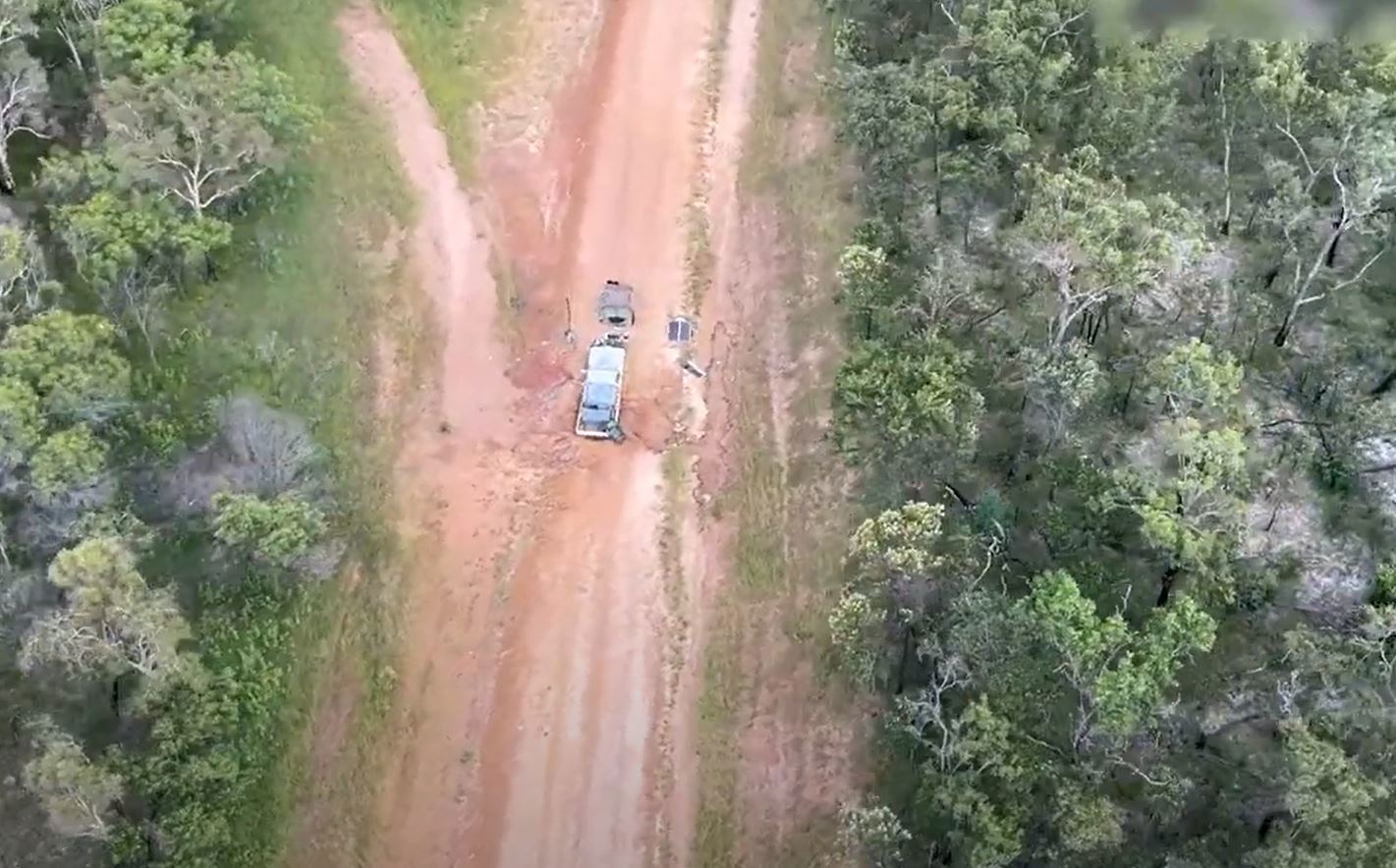 Couple stranded for three days in 'challenging terrain' winched to safety by police
Couple stranded for three days in 'challenging terrain' winched to safety by police
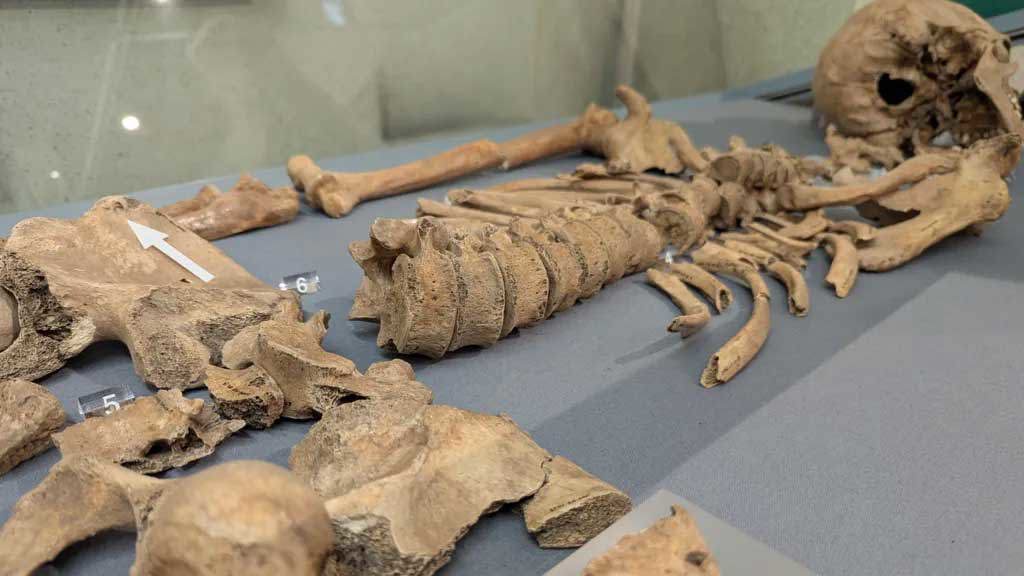 Bites on skeleton's bones show first evidence of gladiators fighting lions
Bites on skeleton's bones show first evidence of gladiators fighting lions
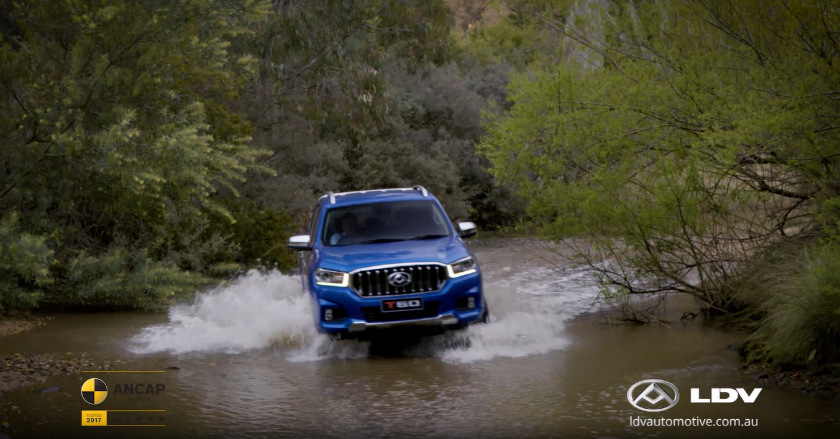 ACCC alleges ute brand's claims of 'durable and tough' cars were misleading
ACCC alleges ute brand's claims of 'durable and tough' cars were misleading
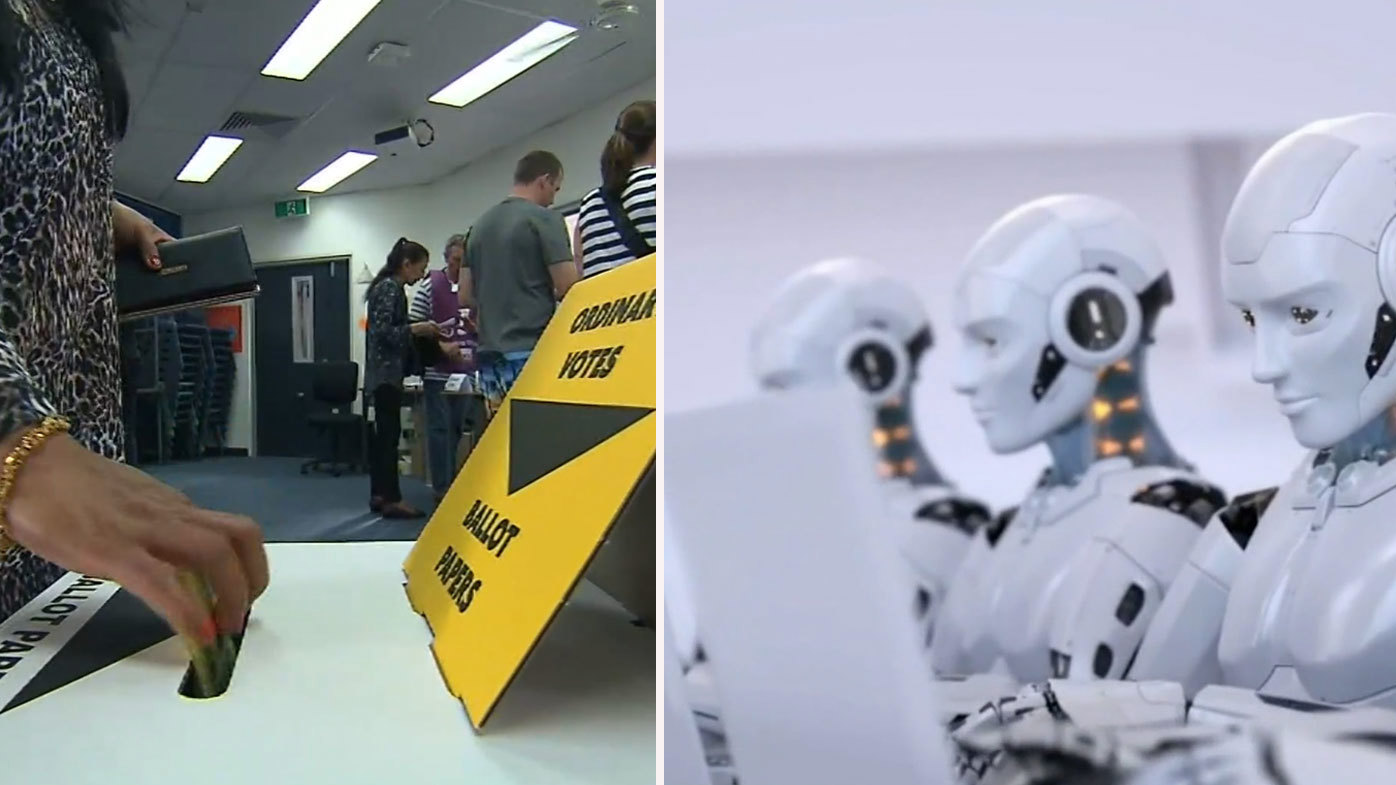 Political figures warn voters about using AI to decide election picks
Political figures warn voters about using AI to decide election picks
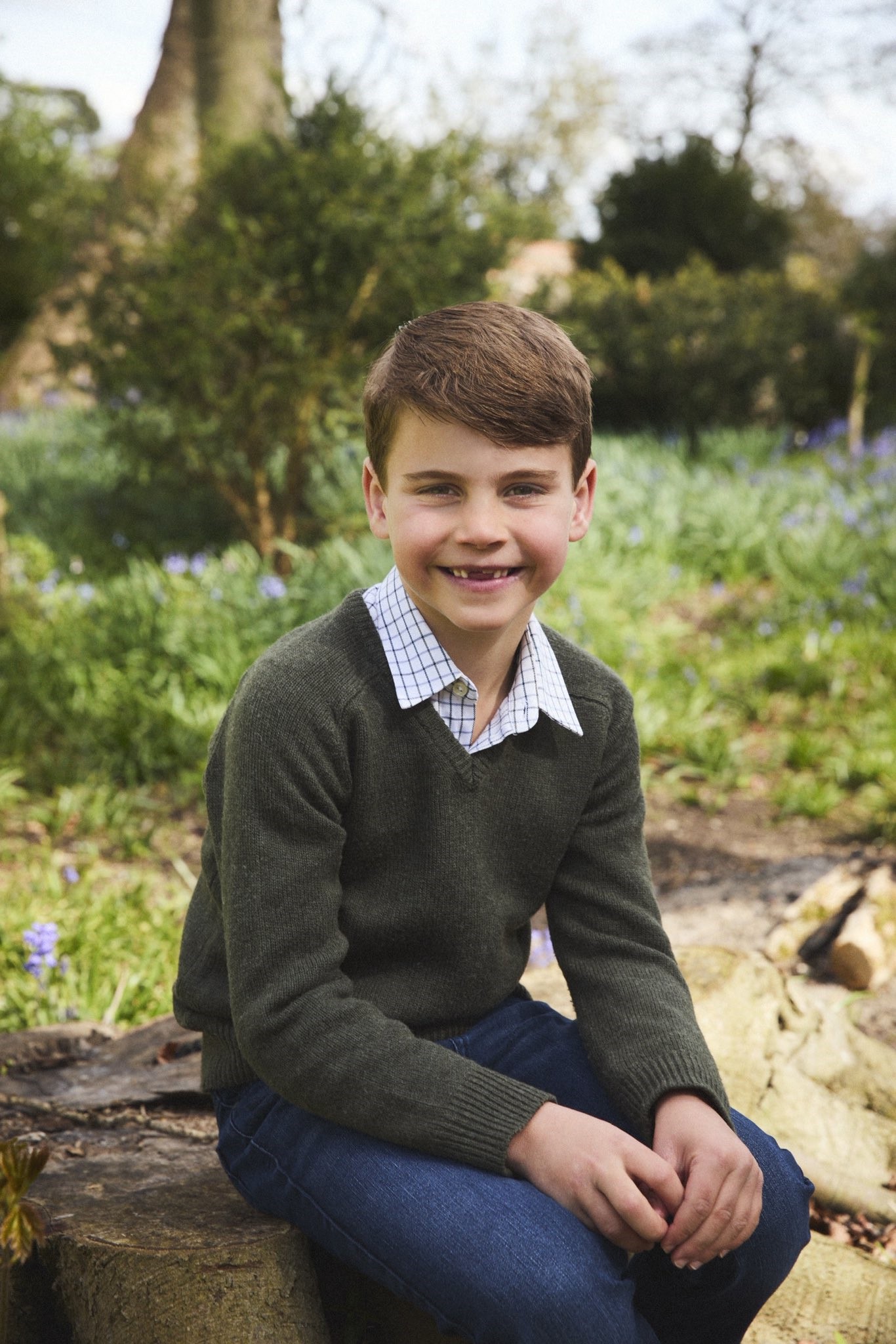 Prince Louis beams in new birthday portrait
Prince Louis beams in new birthday portrait
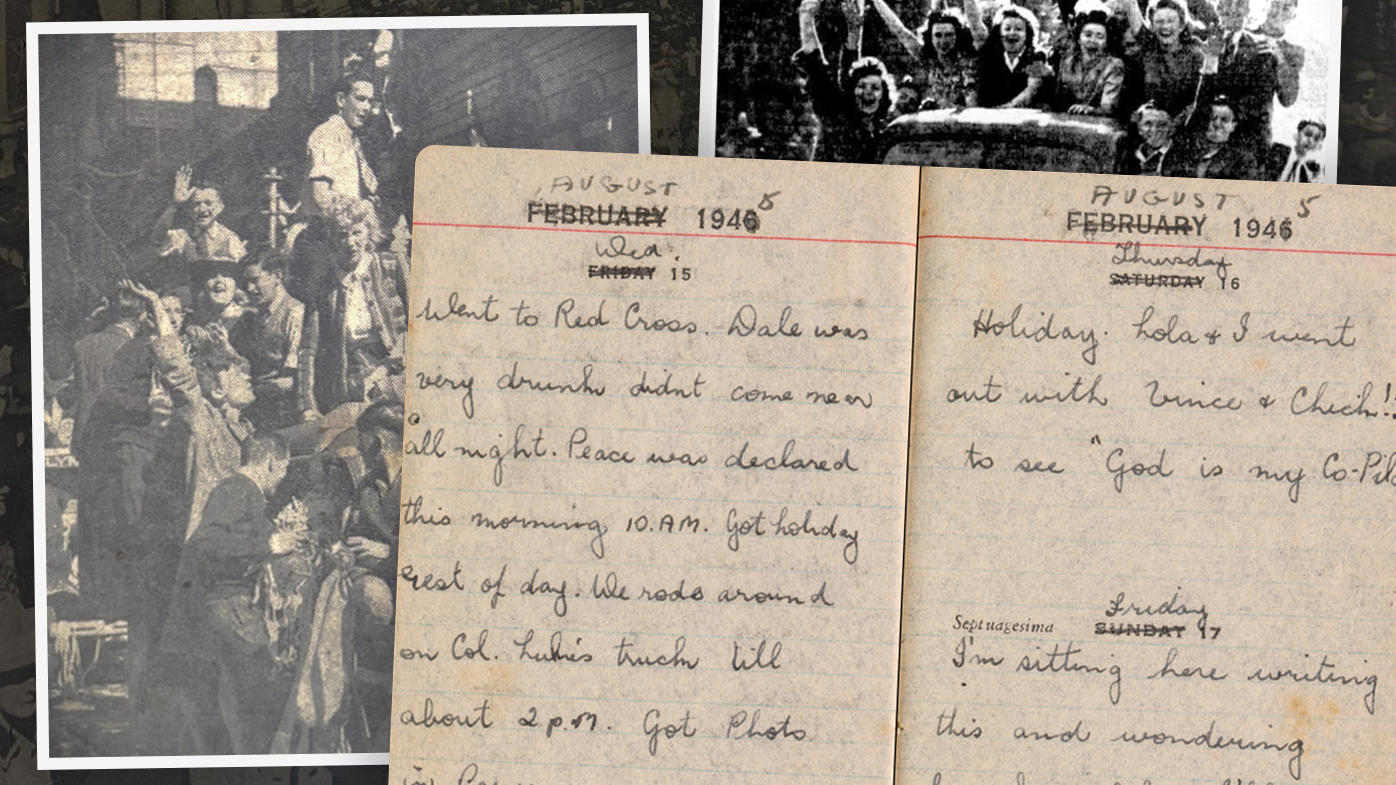 Secret wartime diaries of young Brisbane woman detail life in the 1940s
Secret wartime diaries of young Brisbane woman detail life in the 1940s
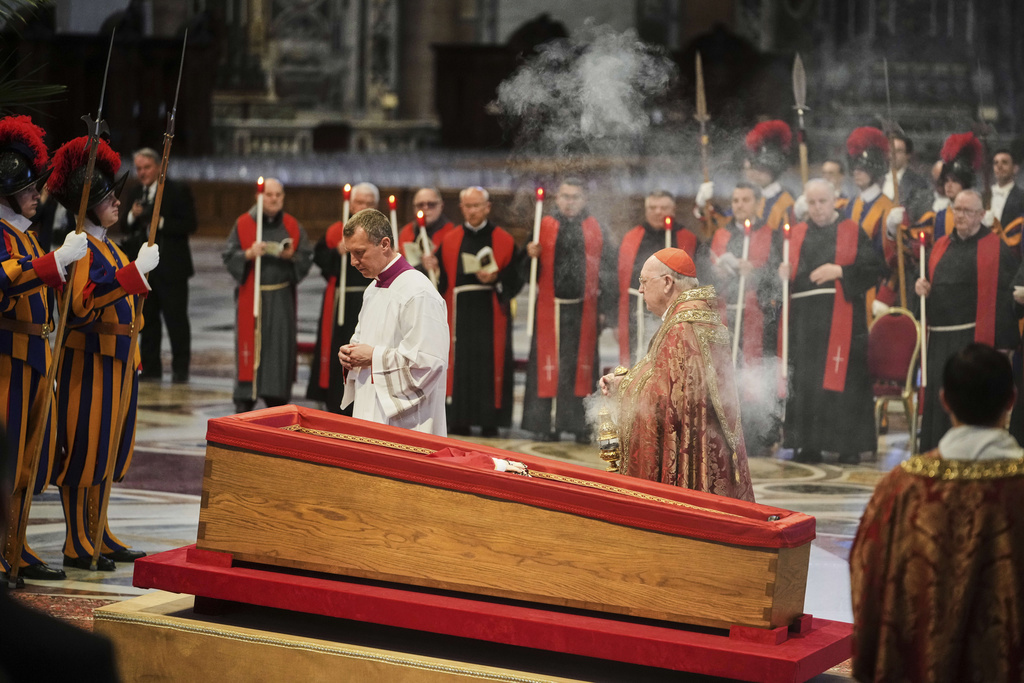 St Peter's Basilica opens for public to pay respects to Pope Francis
St Peter's Basilica opens for public to pay respects to Pope Francis
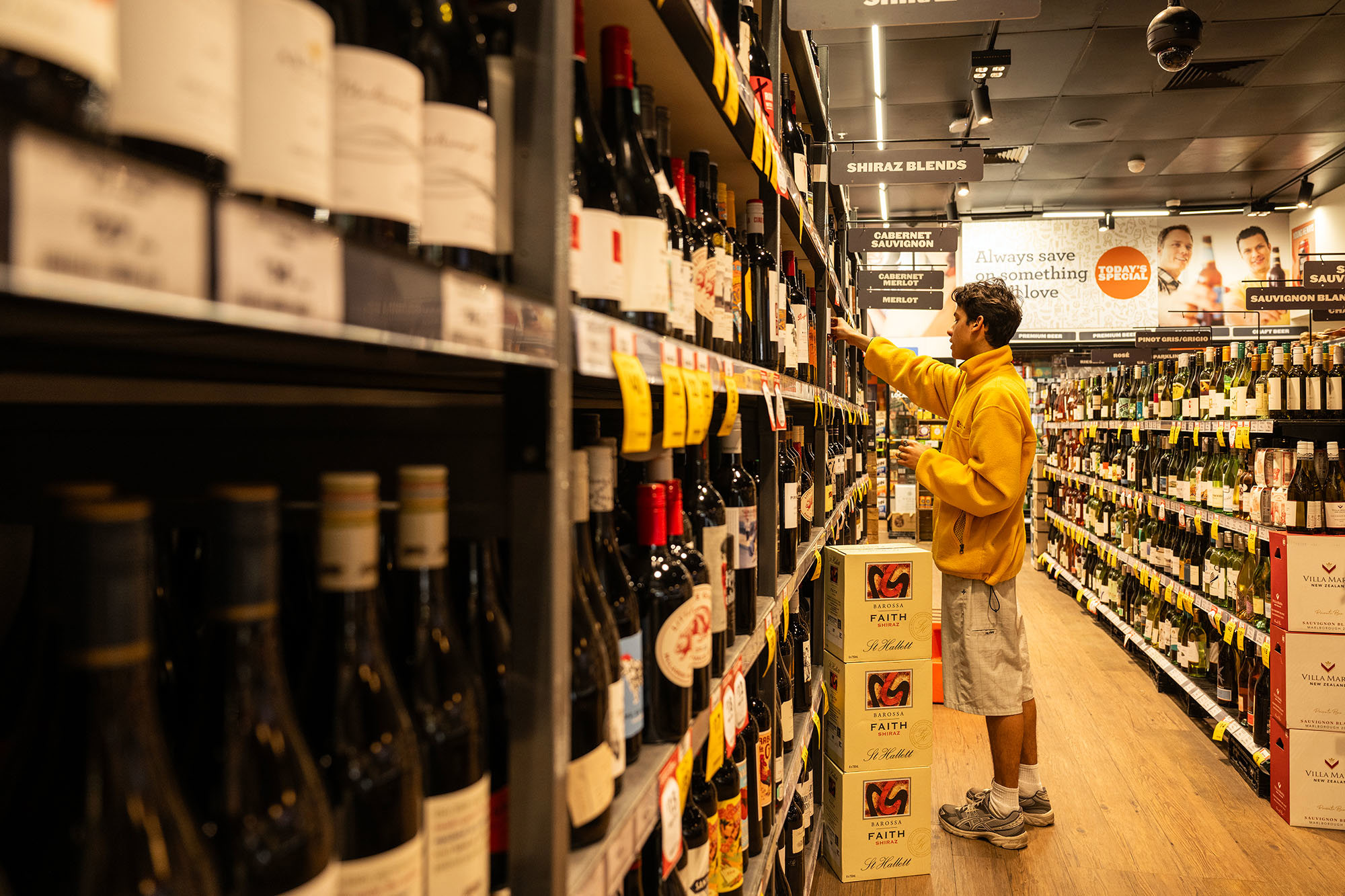 Bottle shops slam state's new Anzac Day trading shutdown
Bottle shops slam state's new Anzac Day trading shutdown
 Aftershock recorded after buildings rattled by 4.6-magnitude quake
Aftershock recorded after buildings rattled by 4.6-magnitude quake
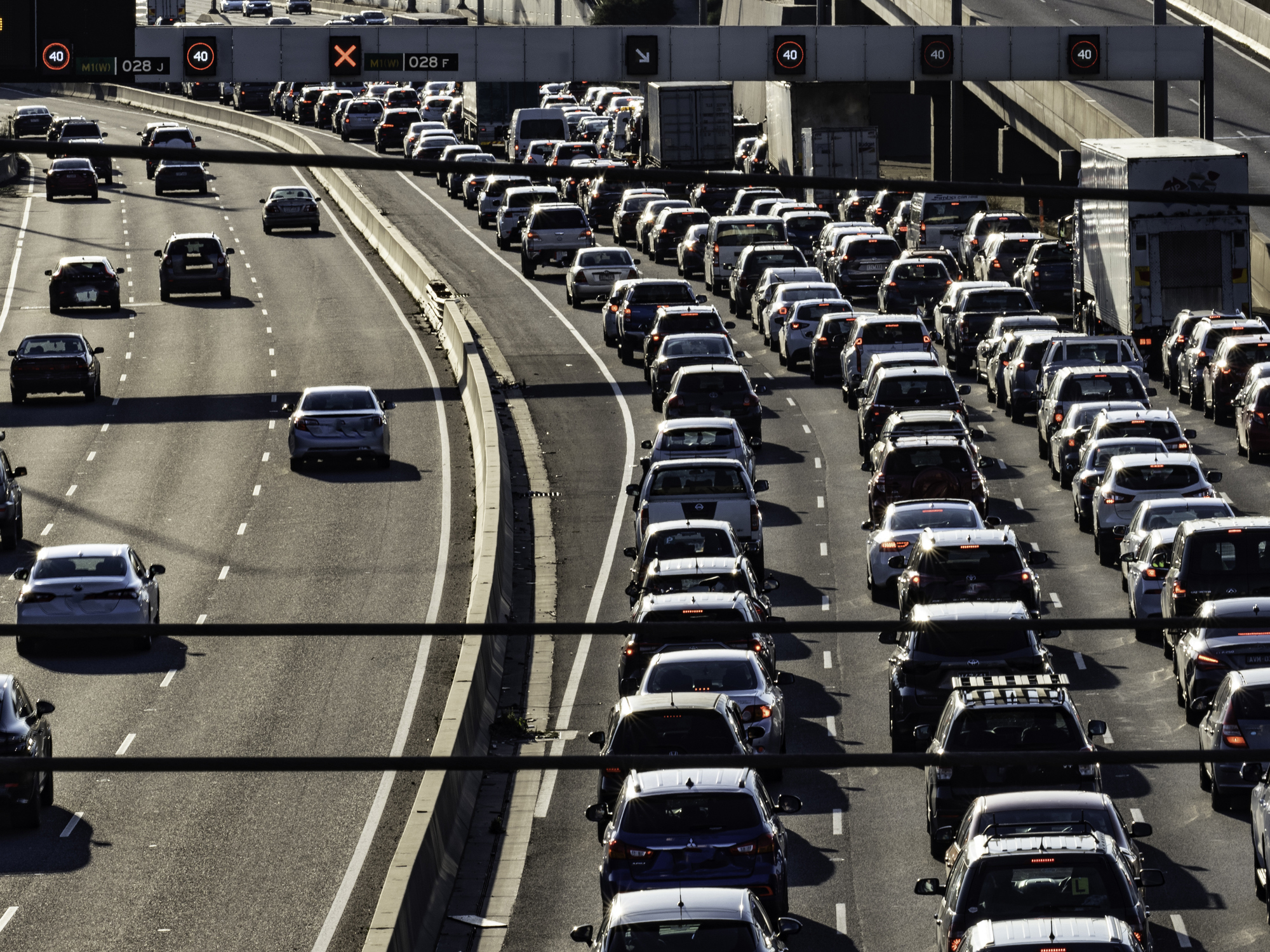 When and where do double demerits apply this Anzac Day long weekend?
When and where do double demerits apply this Anzac Day long weekend?


